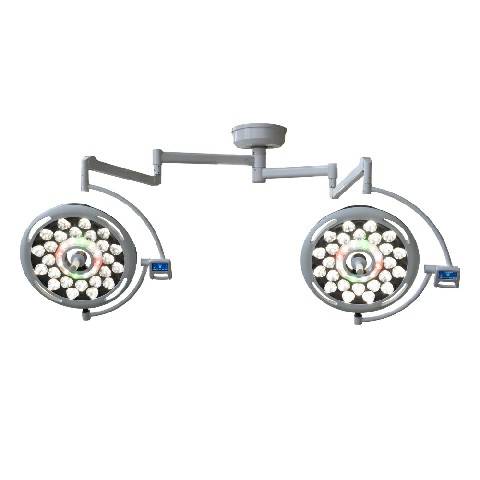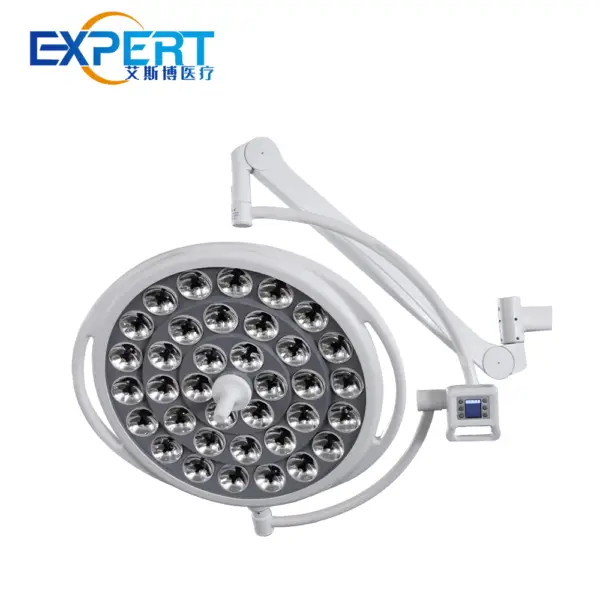عنوان
304 شارع الكاردينال الشمالي
مركز دورتشستر ، ماساتشوستس 02124
ساعات العمل
من الاثنين إلى الجمعة: 7 صباحًا - 7 مساءً
عطلة نهاية الأسبوع: 10 صباحًا - 5 مساءً

In the complex and high-stakes environment of surgical operations, visibility is paramount. Proper lighting is crucial for ensuring that surgeons and their teams can see clearly, making precise incisions and performing intricate procedures safely and effectively. Surgical operating lights are designed specifically to address this need, playing a critical role in minimizing shadows and enhancing visibility during surgery. This blog explores the importance of surgical operating lights, their key features, benefits, and considerations for their use in modern operating rooms.
Surgical operating lights are specialized lighting systems used in operating rooms to provide optimal illumination of the surgical field. These lights are designed to enhance visibility, reduce shadows, and improve the precision of surgical procedures. They come in various configurations and technologies to meet different needs and preferences in the operating room.
Surgical operating lights provide bright, focused illumination, allowing surgeons to see the surgical field clearly. This improved visibility is crucial for accurate procedures and reducing the risk of errors.
One of the primary roles of surgical operating lights is to minimize shadows cast by the surgeon, instruments, and other equipment. By reducing shadows, these lights ensure that the surgical team can see every detail of the operating field without obstruction.
High-quality surgical operating lights are designed to offer excellent color rendering, which helps in differentiating tissues and identifying anatomical structures accurately. This is essential for successful outcomes in delicate surgeries.
The ability to adjust the brightness and focus of surgical lights allows for customization based on the procedure and the surgeon’s preferences. This flexibility enhances comfort and precision during operations.
Modern surgical operating lights are designed with ergonomic considerations in mind. Features such as flexible arms and easy positioning controls ensure that the lights can be maneuvered effectively without disrupting the sterile field.
Proper lighting helps reduce eye strain for the surgical team by providing consistent and adequate illumination. This contributes to maintaining concentration and reducing fatigue during long procedures.
Surgical operating lights are often equipped with features that help maintain a sterile environment, such as easy-to-clean surfaces and antimicrobial coatings, contributing to patient safety.
| Type of Surgical Operating Light | دلائل الميزات | المزايا | العيوب |
|---|---|---|---|
| Ceiling-Mounted Lights | Fixed position, high intensity | Stable illumination, minimal movement | Limited flexibility in positioning |
| مصابيح جراحية متنقلة | Adjustable position, portable | Flexibility in placement, easy to move | Requires space for movement |
| أضواء LED الجراحية | Energy-efficient, high color rendering | Low heat emission, long lifespan | تكلفة أولية أعلى |
| أضواء هالوجين جراحية | High intensity, good depth perception | Lower cost, traditional technology | Higher heat output, shorter lifespan |









In general surgery, surgical operating lights are essential for providing clear visibility of the operating field. Their ability to reduce shadows and offer accurate color rendering is crucial for successful outcomes.
Orthopedic procedures often require precise illumination to identify and treat fractures, alignments, and implants. Surgical lights that minimize shadows and offer adjustable intensity are particularly beneficial in this field.
In neurosurgery, where precision is paramount, surgical operating lights help in illuminating delicate structures within the brain and spinal cord. Their ability to provide focused and shadow-free light is critical for safe and effective procedures.
Cardiac surgeries involve intricate procedures on the heart and surrounding vessels. High-quality surgical operating lights ensure that surgeons have the visibility needed to perform complex operations with precision.
Ophthalmic surgeries require meticulous lighting to ensure the safety and accuracy of procedures involving the eyes. Surgical lights with excellent color rendering and shadow reduction are essential in this specialized field.

Choose lights with adjustable intensity to accommodate different surgical procedures and preferences. Ensure that the light intensity is sufficient for detailed tasks without causing glare or discomfort.
Look for surgical lights with advanced optics and shadow reduction features to minimize interference from shadows, enhancing the clarity of the surgical field.
Select lights that offer high color rendering and color temperature similar to natural daylight. This ensures accurate visualization of tissues and anatomical structures.
Consider the design and flexibility of the lighting system. Ergonomic features such as adjustable arms and easy positioning controls contribute to convenience and effectiveness during surgery.
Ensure that the surgical lights have features that support easy cleaning and maintenance, such as antimicrobial coatings and smooth surfaces. This helps maintain a sterile environment and prolongs the lifespan of the equipment.
Surgical operating lights play a crucial role in modern surgical environments by providing the necessary illumination to minimize shadows and enhance visibility. Their advanced features, including adjustable brightness, shadow reduction, and excellent color rendering, contribute to the success of various surgical procedures. Choosing the right surgical operating light involves considering factors such as light intensity, shadow reduction technology, and ergonomics to ensure optimal performance and safety in the operating room.
س: ما هي surgical operating lights?
A:Surgical operating lights are specialized lighting systems used in operating rooms to provide optimal illumination of the surgical field. They are designed to reduce shadows, enhance visibility, and support precision during surgical procedures.
Q:How do surgical operating lights reduce shadows?
A:Surgical operating lights are equipped with advanced optics and positioning mechanisms that minimize shadows cast by the surgeon, instruments, and other equipment. This ensures a clear and unobstructed view of the operating field.
Q:What factors should be considered when choosing surgical operating lights?
A:When selecting surgical operating lights, consider factors such as light intensity, shadow reduction technology, color temperature, ergonomics, and ease of maintenance. These factors influence the effectiveness and convenience of the lighting system.
Q:Are LED surgical lights better than halogen lights?
A:LED surgical lights offer several advantages over halogen lights, including energy efficiency, lower heat emission, and a longer lifespan. However, they may have a higher initial cost. The choice depends on the specific needs and preferences of the surgical team.
س: كيف افعل أضواء الجراحية contribute to maintaining a sterile environment?
A:Surgical lights often feature smooth, easy-to-clean surfaces and antimicrobial coatings that help maintain a sterile environment. Regular cleaning and maintenance are essential to ensure the lights contribute to overall patient safety.
Q:Can surgical operating lights be adjusted during surgery?
A:Yes, many surgical operating lights come with adjustable brightness and positioning features, allowing the surgical team to modify the lighting as needed during the procedure. This flexibility helps accommodate different procedural requirements.
س: كم مرة يجب أن surgical operating lights يتم الحفاظ عليها؟
A:Regular maintenance is crucial for ensuring the optimal performance of surgical operating lights. Maintenance schedules typically involve routine cleaning, inspection, and replacement of components as needed. Refer to the manufacturer’s guidelines for specific recommendations.
